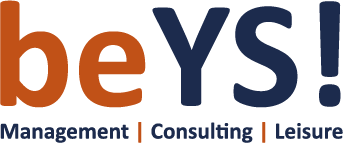World recognition Corp. of Greenville, S.C., is amongst the biggest installment loan providers in the nation, with an increase of than $500 million in yearly income and a stock cost that’s been soaring in the last few years. It runs a string in excess of 1,000 storefront workplaces in 13 states over the Southern, Midwest and Mexico.
World Finance shops (that’s just what the indications outside say) offer just what customer advocates call вЂsmall-dollar, high-cost’ installment loans, repaid in fixed equal payments, to credit-challenged consumers who don’t have lots of other choices for borrowing cash.
The company profits heftily by providing loans that are loaded with interest, fees, and credit insurance, often near the maximum allowed by state law; from renewing those loans multiple times, adding on more interest, fees, and insurance premiums; and from aggressive collection practices to get their money as Marketplace and ProPublica have found in an investigation.
Latest Tales on Market
- Maryland passes brand new income tax on web advertising
- For U.S. solution organizations, use of Asia nevertheless blended
- Lunar brand New meal kits boom in London as restaurants remain in lockdown year
In yesterday’s installment that is first of series “Beyond Payday Loans,” 31-year-old Katrina Sutton informed her tale.
She took away a $207 installment loan from the World Finance shop in her own Atlanta suburb of McDonough, Ga. to repair the brake system on the 1997 Crown Victoria. She had been working part-time at Walmart during the time, but her hours got cut and she had difficulty having to pay, therefore World renewed her loan, providing her with a little payout — $44 — of major she’d already reduced.
https://personalbadcreditloans.net/reviews/moneykey-loans-review/
Whenever she nevertheless couldn’t spend, World sued, garnished her wages and froze her payroll debit card.
Arriving at the end associated with line
Whenever borrowers stated they couldn’t spend, it had been the Marine’s that is former job lean in it, to threaten to simply just simply take their material. Often, they threatened straight right back.
“We made high-risk loans therefore we went along to areas of town that weren’t the very best,” he recalls. “One experience: we had taken into somebody’s driveway, after which someone immediately taken in behind me personally to block my vehicle. Nonetheless it wasn’t plenty the very fact on loans that we knew they couldn’t spend. that I happened to be intimidated by collections, it absolutely was the truth that I happened to be likely to these people’s houses and fundamentally harassing them”
World stated in a page giving an answer to concerns from market and ProPublica it hardly ever seizes security that borrowers pledge for loans. Chris Kukla associated with the Center for Responsible Lending states the security frequently isn’t worth much, plus it’s an inconvenience to market it well. However the hazard is extremely effective.
“Because i’m getting your car,’ or вЂIf you don’t pay me I’m backing a truck up and I’m going to empty your living room,’ you’re going to find a way to pay,” says Kukla if you get a phone call that says, вЂIf you don’t pay me.
Earnings through the financial obligation company roll in
World would not consent to a job interview. In response to written concerns, the organization stated its charges, interest and insurance costs, in addition to its collection methods, are appropriate and appropriate. World stated it underwrites its loans to produce borrowers that are sure pay for them, and therefore it notifies clients written down of this regards to their loans.
Market managed to call into — and record — the company’s annual earnings call with investors on April 25.
After launching himself together with senior administration group, CEO Alexander “Sandy” McLean ran along the company’s impressive financials: record income and profits in 2012; brand brand new stores started in Indiana and Mexico, and throughout the company’s core territory when you look at the Southern and Midwest. The stock (WRLD on NASDAQ) was on a tear — up from about $60-a-share in April 2012, to over $ today that is 90-a-share.
